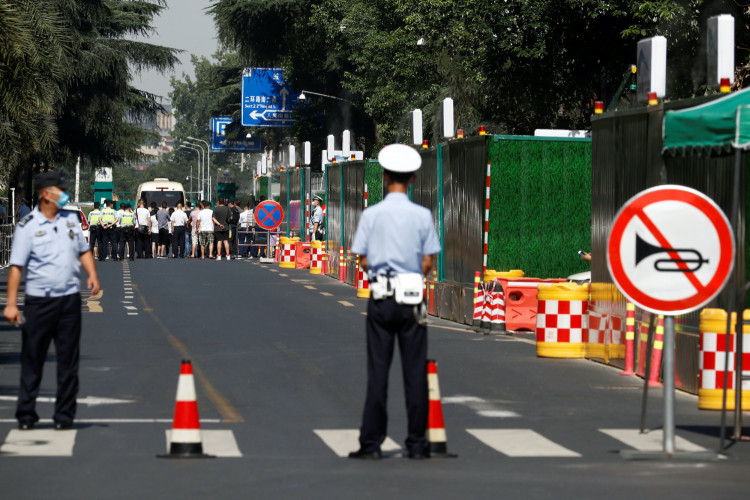Chengdu, the capital of the Sichuan province in southern China, extended a lockdown in most of its districts on Thursday in an effort to stop the spread of COVID-19 cases in the 21.2 million-person metropolis.
Local government officials announced late on Wednesday that there are still concerns about the virus spreading in some places even though the lockdown was supposed to be lifted on Sept. 7.
After discovering several cases, the megacity, which has most recently dealt with heat waves, power outages, and an earthquake, was placed under lockdown on Sept. 1 and became the largest Chinese city to experience restrictions since Shanghai earlier this year.
When compared to pandemics in other parts of the world, Chengdu has been reporting less than 200 new locally transmitted infections every day since that time. According to local authorities on Thursday, discovered 116 new instances on September 7 as opposed to 121 the day before.
Out of the 23 areas under Chengdu's control, 16 districts, cities, counties, and special zones are still on lockdown, according to the authorities.
Every day, residents in lockdown zones will be checked, and those who test positive will be placed in quarantine. It is prohibited for residents in high-risk locations to leave their houses. The COVID-19 prevention and control command for the city of Chengdu announced in a statement that it hopes to achieve zero new community infections citywide within a week.
A few areas were taken out of total lockdown, but Friday and Sunday will still involve widespread testing for everyone. Additionally, residents in areas that are no longer completely under lockdown are prohibited from traveling to other areas and are urged not to leave Chengdu for non-essential reasons. The policies will be "dynamically adjusted according to the development of the epidemic", the statement said.
China has been working to limit the spread of the extremely contagious Omicron variety by implementing various levels of city lockdowns. In April and May, Shanghai was under lock and key. Xian and Shenzhen are two more significant cities that have seen lockdowns and restrictions.
The recent flare-ups coincide with a year in which President Xi Jinping is largely predicted to win a record-breaking third term as China's president at a once-every-five-years meeting of the ruling Communist Party in mid-October.
According to the National Health Commission's report released on Thursday, China saw 1,439 new infections on September 7. The number of deaths in the country remained at 5,226 due to no additional fatalities, which is the same as the day before.





